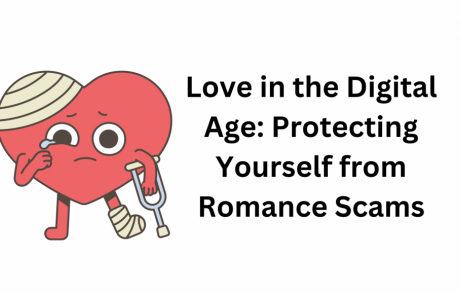Love in the Digital Age: Protecting Yourself from Romance Scams

In an era where relationships often begin online, the risk of falling victim to romance scams has become a significant concern. Cybercriminals capitalize on emotions, trust, and vulnerability, leaving individuals susceptible to financial and emotional exploitation. In this article, we'll explore the red flags and crucial cybersecurity practices to help you stay safe and enjoy the digital realm of romance without falling prey to scams.
Understanding Romance Scams:
- Recognize the Signs. Romance scams typically involve individuals who establish fake online relationships to exploit victims emotionally and financially. Common signs include a rapid progression of affection, reluctance to meet in person, and requests for money or personal information.
- Verify Identities. Before investing emotionally or financially in an online relationship, verify the other person's identity. Use reverse image searches to check profile pictures and cross-reference information on social media platforms.
Cybersecurity Best Practices:
- Guard Personal Information. Never share sensitive information, such as your home address, financial details, or social security number, with someone you've met online. Legitimate partners will understand the need to prioritize your safety.
- Be Cautious with Financial Transactions. Avoid sending money to someone you've never met in person, regardless of their convincing stories. Requests for financial assistance or emergencies should raise immediate suspicions.
- Use Reputable Dating Platforms. Opt for well-established and reputable dating websites or apps that prioritize user security. Avoid engaging in conversations on platforms that do not prioritize user safety.
- Report Suspicious Activity. If you encounter suspicious behavior or suspect that you are dealing with a scammer, report the profile to the dating platform and any relevant authorities. This helps protect others from falling victim to the same scam.
Red Flags and Warning Signs:
- Unrealistic Stories and Excuses. Scammers often fabricate elaborate stories to gain sympathy and manipulate emotions. Be wary of tales involving sudden emergencies, tragic events, or financial hardships.
- Reluctance to Meet in Person. Scammers may avoid meeting in person by providing excuses or creating false barriers. Insist on meeting face-to-face in a safe and public place before becoming too emotionally invested.
- Inconsistent or Contradictory Information. Pay attention to inconsistencies in the information shared by your online connection. Scammers may struggle to maintain a consistent narrative over time.
Educate Yourself:
- Stay Informed about Scams. Keep yourself updated on common romance scams and familiarize yourself with the tactics employed by scammers. Awareness is a powerful tool in preventing victimization.
- Seek Advice from Trusted Friends. Share details of your online relationship with trusted friends or family members. They can provide valuable perspectives and help identify potential red flags.
While the digital age offers exciting opportunities for connecting with others, it's crucial to approach online relationships with caution and mindfulness. By recognizing the signs of romance scams and implementing robust cybersecurity practices, you can enjoy the benefits of digital romance while safeguarding yourself from potential risks. Stay vigilant, trust your instincts, and prioritize your safety in the pursuit of meaningful connections.
Where to Report Romance Scams
First, collect all the information you can find, such as messages, pictures, profile screenshots, and receipts.
Second, stop all contact with that individual and block their phone number, email address, dating, and social media accounts.
Then…
- Report their profile(s) to the dating or social media platform where you first made contact (e.g., Facebook, eHarmony, Instagram, etc.)
- If you send a gift card or wire transfer, contact the issuer. They can help you stop the transaction.
- If you provide financial information (e.g., credit card, banking information, etc.), contact your bank or credit card company immediately. They can help you cancel transactions or get your money back.
- If you give personal information like your social security number (SSN), driver's license information, etc., put a freeze on your credit and watch your credit reports for fraud.
- Reach out to friends, family members, and professionals to help with emotional difficulties.
Also, report to:
- FBI via the Internet Crime Complaint Center (IC3) - https://www.ic3.gov/
- Submit a fraud complain with the Federal Trade Commission (FTC) - https://www.ftc.gov/